
Mining & Trade News
Malawi Online News
Top Stories

Energy
Malawi Govt. seeks investor for con-struction of Beira-Nsanje oil pipelineFebruary 25, 2022 / Bester Kayaye
The Malawi Government is scouting for a strategic investor to construct the Beira-Nsanje oil pipeline based on the Build, Own, Operate and Transfer (BOOT) arrangement.
Spokesperson for the Ministry of Energy Upile Kamoto explained that Government is failing to execute the proposed multi-million kwacha project, which has been on the cards for a long time, due to lack of funds.
Once completed the project is envisioned to aid in reducing landing costs of fuel into the country, apart from securing adequate fuel supplies.
Kamoto said; “The project is still on the cards. It seeks to construct a petroleum fuels transportation pipeline either from Beira to Nsanje or from Beira to Blantyre. Due to limited government finances, the preference is to engage a private company on Build Own Operate and Transfer (BOOT) arrangement.”
“The project is envisaged to improve cost, safety and reliability of transportation of petroleum fuels and hence improve on fuel security in Malawi.”
She said currently the project is at a stage where the government is looking for funds to conduct feasibility studies including possibilities of securing an investor who will do all the feasibility studies and develop the project under BOOT arrangement.
Kamoto, however, said there are no tangible timelines for the project due to unavailability of funds
“Since there are no funds yet for feasibility studies and its development, no tangible timelines are there yet for the project and the project cost will only be arrived at when the full feasibility study has been carried out,” she said.
Currently, National Oil Company of Malawi (NOCMA) has the capacity to keep 60 days of fuel for the country in its reserves with plans underway to increase to possibly 180 days.
Malawi hauls fuel imports from the ports of Nacala and Beira in Mozammbique and Dar es Salaam in Tanzania mainly through road transport.
Meanwhile, NOCMA is working on increasing fuel imports through rail, which is a cheaper means of transport compared to road haulage.
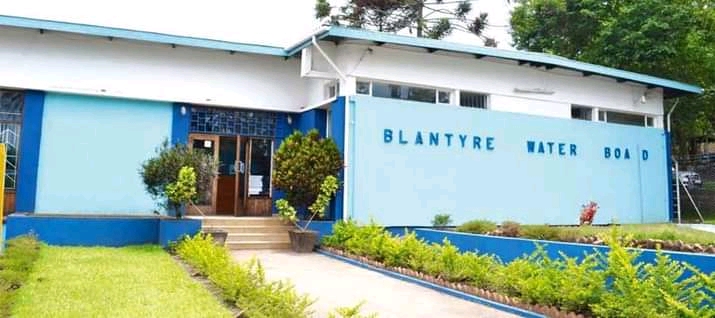
Energy
High electricity tariffs scare water service provider BWBDecember 13, 2021 / Bester Kayaye
High cost of electricity by the Electricity Supply Corporation of Malawi (ESCOM) has forced government-owned water supply company, the Blantyre Water Board (BWB), to consider constructing a solar plant to power its water pumps, engines and decontamination equipment.
BWB made the revelation on Monday during the launch of its 2020 – 2025 strategic plan.
BWB board chairperson George Nnesa said the project, to be funded by the Reserve bank of Malawi (RBM), will help the parastatal save on electricity bills and invest the savings in improving services and ensuring institutional growth.
The water utility body incurs a MK1.2 billion monthly average bill, which is usually off-set from an average monthly earning of MK1.3 billion.
“We plan to reduce electricity bills, which eat almost 80 percent of our income,” said Mnesa as he assured that solar power will make the company more efficient in operations.
“Looking at the growing water demand across the country, we intend to expand our income base by reducing expenditures including on electricity which will be complimented by a solar plant to generate power from Nkula falls,” he said.
The Board chair then called on government to bailout the institution from an accumulated outstanding balance of about K24 billion owed to ESCOM over the past two years.
Nnesa also disclosed that BWB will, within the lifespan of the 5-year strategic plan, expand its water storage facilities such as the one in Nguludi in order to meet the accelerated demand of clean water.
In her remarks, Minister of Forestry and Natural Resources, Nancy Tembo, called on stakeholders to commit themselves and collaborate with the Board in implementing the strategy.
“The board has a sound plan and strategy of how it wishes to serve its customers better in the next years,” she said. “But there is need for it to take a serious step in ensuring it is implemented. This requires that all stakeholders should revitalize their commitment to see the strategy being actualized,” Tembo said
She added: “Among other things government expects to see BWB curb 54 percent of non-revenue water which is lost due to illegal connections and poor infrastructure.”
Tembo assured the parastatal of government’s commitment to supporting it in settling its financial problems through the Ministry of Finance, which she said will facilitate the bailout.
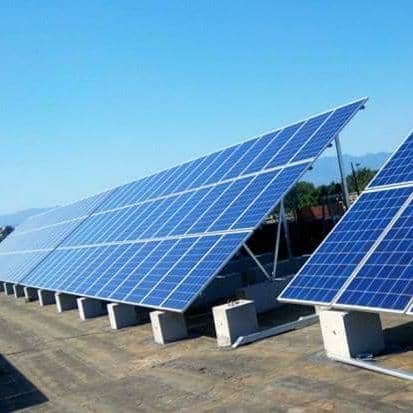
Energy
Solar power transforming homes and industriesDecember 13, 2021 / Chisomo Phiri
With an average of 3,000 hours of sunshine per year, Malawi has high solar radiance potential to compliment the country’s available green energy portfolio, such as hydro-power, in improving the lives of its people and stimulating economic activities.
With this potential in mind, PowerPlus Control Systems, a local company providing solar energy solutions, says it is set to transform the lives of people, especially those not connected to the national power grid.
Less than 10 percent of Malawi’s population of 18 million people is connected to the electrical grid, which makes the country’s power sector the most constrained in the sub-Saharan region.
Jonathan Mlauzi, the founder and director at PowerPlus Control Systems says despite making inroads in providing solar energy answers to the country, whose economy is agro-based, many people are still not aware how much solar can transform their lives.
He explains that currently his company is running the “Go4Solar, Go-Green, Save Bills” which encourages farmers to start solar irrigation and fish farming systems for high productivity and cheaper means of meeting the Malawi Vision 2063.
Mlauzi adds that the campaign also targets people and institutions connected to the national power grid such as hotels, schools, hospitals, banks among others to install solar power backups instead of diesel powered generators, which pollute the environment.
“It is possible to integrate solar and grid (Escom) power in a house and then choose which to prioritize,” says Mlauzi.
PowerPlus Control Systems is now engaged in scaling up the Nkhotakota Solar Energy project, a model for future private Investment into the solar sector. Under this project, the company will be supplying cheaper solar powered equipment across the country.
So far, PowerPlus Control Systems has installed solar submersible pump system to promote irrigation at Kalota Sugarcane Farm in Salima and Mtakatataka Police Training School in Dedza. It has also supplied domestic and commercial solar power systems as well as backup systems across the nation including installing 3× 60KW power backup UPSs in the Malawi Electoral Commission (MEC) data centres.
“We are also expecting to install solar Irrigation systems for cannabis farms,” says Mlauzi.
Meanwhile, the company says the COVID-19 pandemic has brought logistical challenges as it affected the importations of goods.
“It now takes several months to order our goods from abroad than was the case before the pandemic,” he says adding that the devaluation of Kwacha is another challenge.
However, Mlauzi is quick to point out that despite the challenges, PowerPlus Control Systems plans to introduce swappable electric batteries and scooters.
“People in the country have started owning hybrid bikes and cars but most do not know that these also use lithium batteries, which we will soon start supplying to help customers save on fuel consumption,” says Mlauzi, who is also an engineer.
He urges Malawians to embrace solar energy as it is now the “fuel to drive the economy of the country” when other sources of energy have proved unreliable and brought down industrial productivity.
PowerPlus Control Systems designs, supplies and install In/Off Grid solar systems, power backup systems, solar pumps, irrigation systems, Uninterrupted Power Supply (UPS) and data centre power.
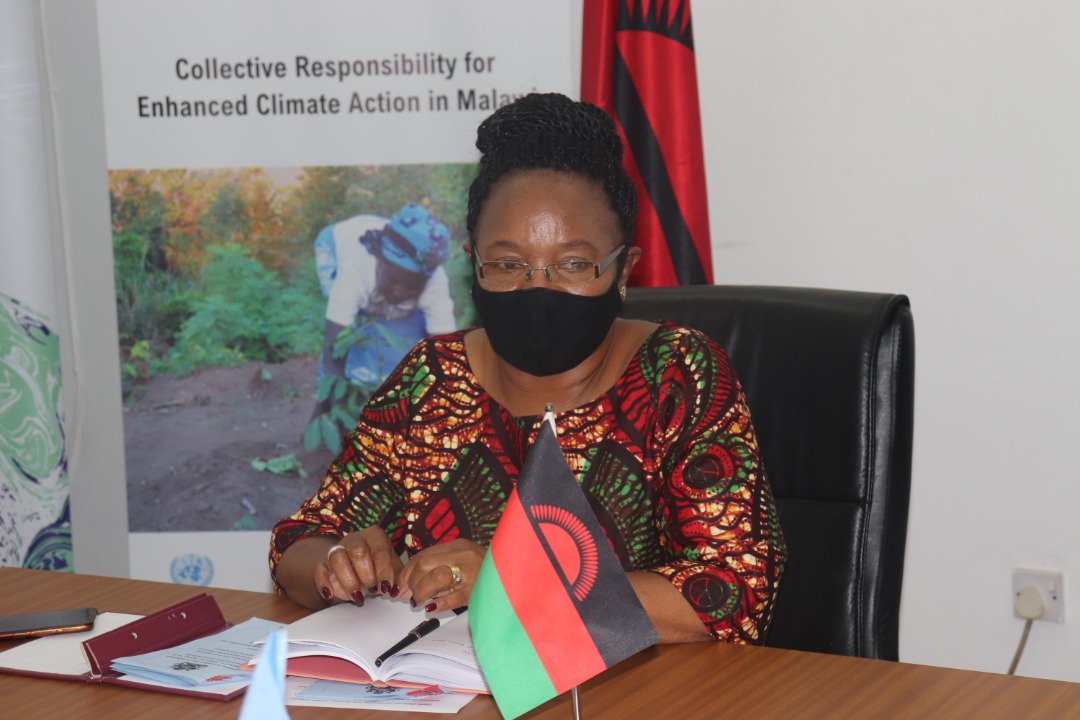
Energy
Malawi not phasing out coal power generation despite global campaign – MinisterDecember 03, 2021 / Admin
The Malawi Government says it is yet to join the Powering Past Coal Alliance (PPCA) on their campaign to end coal power generation globally.
PPCA is a group of 137 countries, cities, regions and orgamisations aimed dramatically accelerating the phasing out of fossil fuel such as coal through innovation and the deployment of clean technologies in five key sectors of the economy including: power, road transport, steel, hydrogen and agriculture.
Malawi’s stand on the development has been revealed after its participation at this year’s 26th Conference of Parties to the United Nations Framework Convention on Climate Change (COP26) which took place from October 31 to November 12, 2021 in Glasgow, Scotland.
Alongside the conference, PPCA Secretariat and United Kingdom (UK) presidency hosted discussion and bilateral meetings on transition to clean and renewable energy, and clean cook stoves, championing campaign on phasing out coal generation; and delivering the historic Paris Agreement.
Presenting an update from the meetings in Parliament, Minister responsible for Forestry and Natural Resources Nancy Tembo said though many countries adopted the Glasgow Climate Pact and pledged to end coal power generation by 2030 and some 2040, Malawi is not ready to answer the call considering the current electricity situation.
Tembo said: “Malawi’s position is to join the Alliance later considering that the country is currently faced with electricity shortages which are slowing down social economic development, yet it has huge coal reserves that can be used for power generation but have not been exploited.
“Malawi has potential to generate 1000 MW from coal. This is very insignificant compared to about 2.045GW which is being generated from coal globally.”
“Nearly 200 countries adopted the Glasgow Climate Pact in Scotland late evening of Saturday November 13, 2021 at the end of COP26.”
“The outcome package asks countries to replace their 2030 national climate action targets with more ambitious emission reductions by the end of next year, 2022.”
“It also calls on countries to comply with standards set by the 2015 Paris Agreement, which asked countries to make changes to keep global warming “well below” 2°C and aim for 1.5°C by the end of 2022 to prevent climate catastrophe.”
According to Tembo, from the discussions and bilateral meetings they had on transition to clean and renewable energy, and clean cook stoves, more than 40 countries pledged to phase down use of coal, the single biggest source of greenhouse gas emissions; signatories to the deal including heavy coal users Poland, Ukraine and Vietnam.
She said also said developed countries pledged to phase out coal in the 2030s, with developing countries committing to a later timeline of 2040s.
From the meeting, Australia did not commit to phasing out the use of coal while at least 20 countries including Italy, Canada, the US and Denmark along with public financial institutions pledged to stop financing overseas fossil fuel industries by the end of 2022, diverting the cash to clean energy activities.
Tembo also reported that countries accounting for 90% of the world’s GDP pledged to reach net-zero emissions by the middle of this century.
Key among them was India which pledge to reach net-zero emissions by 2070 through a massive expansion of renewable energy in the next 10 years until it accounts for 50% of total usage, thereby reducing its emissions in 2030 by 1-billion tonnes from a current total of around 2.5 billion.
In Africa, rapidly developing Nigeria also pledged net-zero emissions by 2060.
Tembo said: “Malawi also committed 50% emission reduction target, if full external financial and technical support is received, by 2040, compared to the business-as-usual scenario, as outlined in the revised Nationally Determined Contribution (NDC).”
“The Glasgow Pact also agrees to fund the Santiago Network on Loss and Damage which will connect vulnerable developing countries with those who can provide the technical assistance, knowledge and resources they will need to address climate risks and avert, minimize and address future losses and damage.”
“Malawi will benefit from the full operationalization of Network as it will support in determining country needs to address loss and damage from climate change.”
“At COP26, it was also interesting to see some developed countries coming forward to provide funding for loss and damage, for example Scottish Government has pledged financial support amounting to two million pounds towards a Loss and Damage Fund.”
During the discussions and bilateral meetings, Tembo was accompanied by the Minister of Foreign Affairs Eisenhower Nduwa Mkaka and Minister of Education Agnes Nyalonje.
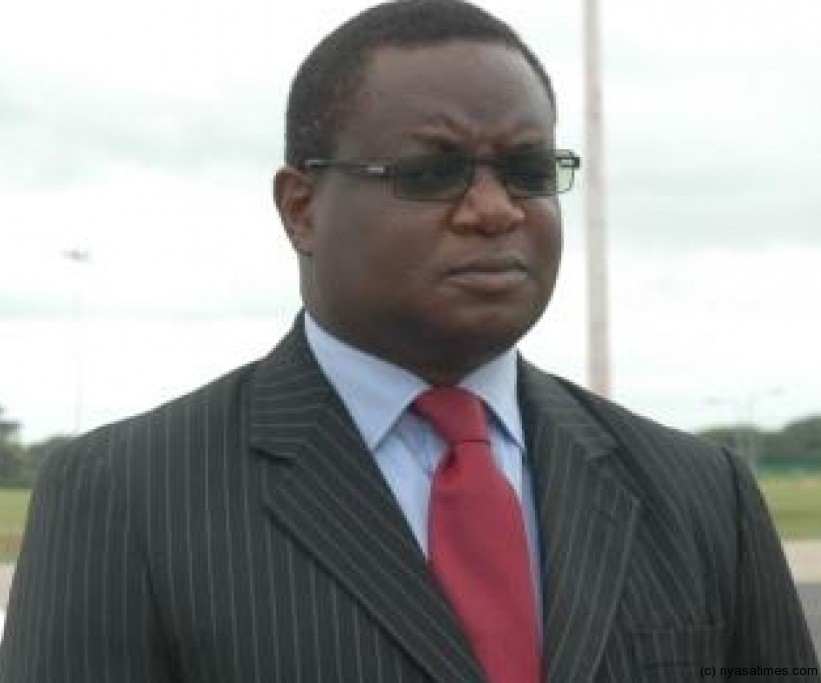
Energy
Construction of Mpatamanga power plant to commence in 2022November 24, 2021 / Bester Kayaye
The Public Private Partnership Commission (PPPC) says commencement of the construction of the Mpatamanga Hydropower Plant, which was scheduled for this year, has been shifted to next year.
The project, which will see the injection of a total of 350MW into the national power grid will be constructed at Mpatamanga Gorge, along the Shire River.
It is being developed through a Public Private Partnership Model in which EGENCO will hold 30% shareholding on behalf of the Government of Malawi.
The other shareholders will be the World Bank’s International Finance Corporation to retain 30% and a strategic partner to hold 40% of the investment.
PPPC CEO Patrick Kabambe disclosed to Mining and Trade Review that the project will not start this year due to on-going negotiations with two international energy firms SN Power Invest of The Netherlands and Electricite De France SA of France which have so far submitted their final technical and financial proposals for assessment.
Kabambe said the two investors have merged to work as a consortium for the project anticipated to be finalized by 2025.
Kabambe said; “We are still under negotiations, the investors submitted their final offer on September 17,2021 and we have just finished evaluation of the proposal, the next step is to embark on negotiations on final details.”
“We understand that citizens’ key instrument is the analysis of whether these companies will be affordable enough to meet current power needs, of which it is noted that this project is worth investing considering the funds being spent in maintaining gensets.”
He also cited that once commissioned, Mpatamanga will double Malawi’s power generation capacity hence paving way for more investment opportunities in the country as major industrial operations have been failing to commence in Malawi due to power deficiency.
Kabambe said: “We have seen many industrial projects in various sectors including mining failing to rollout with some pulling out to other countries due to energy scantiness, but once this project is commissioned, we are optimistic such distresses will halt.”
“And with the coming in of the interconnector with the Southern Africa Power Pool, we stand solid chances of exporting excess power to other countries, equating to new revenue channels for Malawi.”
The project will also assist in meeting future power demand during both peak and off-peak periods, improve the performance of the existing power system due to inclusion of a storage reservoir to support peaking operation as well as significantly reduce the sediment inflow into the Kapichira reservoir, increasing power generation at the plant and prolonging the lifetime of the reservoir.
The total investment on the project is estimated to be approximately US$850-million and a comprehensive World Bank-financed feasibility study for the project was completed in 2018.
During the study, a UK-based global engineering, management, and development consultancy firm Mott MacDonald, Malawi-based C12 Consultants, and France-based biodiversity and ecosystem consultancy Biotope were engaged to carry out the environmental and social impact assessment (ESIA) for the project.

Energy
NBM dangles financing for renewable energy projectsNovember 21, 2021 / Bester Kayaye
NBM Development Bank, which is a subsidiary of Malawi’s financial powerhouse National Bank of Malawi (NBM), says it has earmarked funds to lend to enterprises embarking on production of clean and renewable energy.
NBM Development Bank Projects Officer Tothola Gonthi told Mining and Trade Review that under the financing product, the Bank offers long and medium term loans, equity and quasi equity capital, Credit Risk Guarantees and leasing facilities to qualifying Small and Medium Enterprises (SMEs) in line with its strategic objectives and business model.
Gonthi said: “Basically we are financing projects that are trying to deliver clean and renewable energy, including charcoal briquettes in a quest to eliminate use of environmentally hazardous stoves.”
“The development bank has been financing these projects for the past two years, but we commenced full scale financing last year, 2020.”
He said the Bank has not set a limit in terms of amount of funds to be loaned out since it intends to finance as many players as possible as there is a huge market for renewable energy in Malawi catalyzed by the country’s power deficiency.
Gonthi said the Bank will finance enterprises that demonstrate impact in terms of promoting environmental and social-economic sustainability including clean energy projects for low income population such as development of clean stoves for cooking, water purifiers and solar lightning projects.
So far, the Bank has disbursed over K427 million to various players in renewable energy sector including solar system supply retailers.
Gonthi explained: “Basically for one to qualify for our financing opportunity, the enterprises are supposed to be solely dealing in clean and renewable energy, and they have to submit a comprehensive business proposal as it is vital to determine and weigh the prospects of business in proportion to the funds being sought-after,”
“We finance start-ups as well as those that are intending to expand, for example Pan Green Africa which is venturing into charcoal briquettes production, we financed them from start up to the extent they are in production.”
With the minimum amount of capital financing pegged at MK 15 million and Maximum of MK 150 million, the Bank has so far financed over six enterprises which are currently on production phases.
Malawi’s energy sector is one of the most severely constrained in sub-Saharan Africa as less than 10% of the population of 18 million is connected to the national electrical grid. For 80% of the people living in rural areas, access to electricity is less than 1%.
The total installed capacity for power generation in the interconnected grid of Malawi operated by Electricity Supply Corporation of Malawi (ESCOM) is approximately 362 MW, of which 351 MW is hydropower and 11 MW is power produced from reciprocal engines.
Estimates indicate that shortage of capacity frequently exceeds 60 MW, or over 17% of peak demand in Malawi. With no reserve margin and a stressed system, the reliability and quality of electricity supply is poor.
Malawi depends on domestic generation, as there are currently no significant interconnections to neighboring countries.
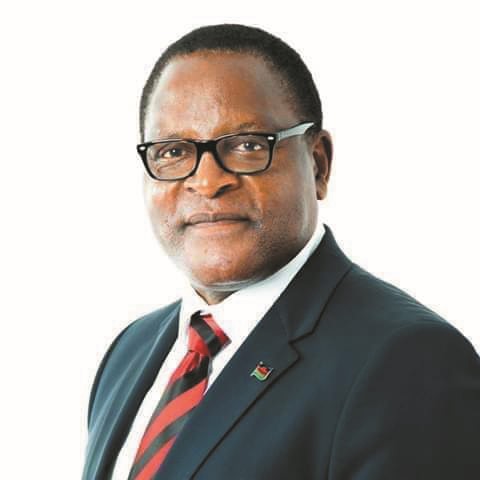
Energy
Malawi to develop Renewable Energy ActNovember 17, 2021 / Wahard Betha
In an attempt to regulate and reduce inefficiencies in the energy sector, the Malawi Government has revealed plans to develop a Renewable Energy Act. The Act will also go a long way in creating a fertile ground for the participation of Independence Power Producers (IPPs) in the sector.
The current IPP Framework need some improvements to set an enabling environment for various actors in the sector, President Lazarus Chakwera told the gathering in Salima when he inaugurated the 60MW JCM Power plant, the first IPPs solar project to be connected to the national grid.
Chakwera added that the Act will also address red tape and other weak governance systems to guarantee private investment security in the sector.
“For serious developers like JCM Power, who have sourced financing support from the Dutch Development Bank and InfraCo Africa Limited, as well as a liquidity guarantee from the African Trade Insurance Agency, Malawi cannot afford to have governance systems that take eight years for a project like this to move from conception to completion,” he said.
Dismayed by the red tape in government, Chakwera noted that the decision to unbundle the concentration of energy functions in the Electricity Supply Corporation of Malawi (ESCOM) and create separate institutions in order to make the power market more efficient, left behind loose administrative processes that were not responsive to investors.
“More needs to be done to make the administrative processes within these new entities less susceptible to political interference and human error. In short, more needs to be done to make the administrative processes within these entities faster,” he said.
Following the unbundling of ESCOM, Energy Generation Company (EGENCO) took over the responsibility of generating power, ESCOM retained the responsibility for power distribution while Power Market Limited assumed the responsibility of purchasing power,
Chakwera further called on the Ministry of Energy to be professional in handling prospective investors in the energy market so that the country can meet the target of 1000MW in the next four years.
He further advised investors who secured Power Purchase Agreements but had not started implementing their projects to pull up their socks or face consequences. “Malawians have no patience for pretenders. We want serious people like JCM has shown themselves to be,” he said.
The President commended JMC Power for promoting a green future, which fits with the country’s desire for clean energy sources.
He said despite Malawi not being one of carbon emitters, there is a need to embark on more clean energy sources understanding that the country is not spared from negative impacts of climate change as a result of the emissions of nations in the global north.
Recently, Chakwera attended the Climate Conference in Scotland where he witnessed the launch of the Global Energy Alliance for People and Planet, whose aim is to promote universal access to clean and affordable energy.
According to Chakwera, the JCM solar power plant is a potent symbol of the country’s commitment to that agenda, a commitment to building a new Malawi of access to clean and affordable energy.
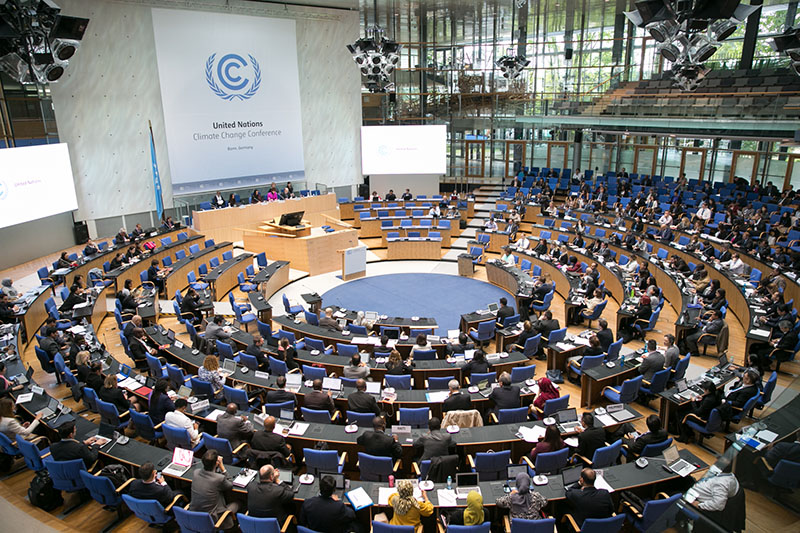
Energy
Climate conference gives hope to Malawi’s industrial sectorNovember 15, 2021 / Charles Mkula
Recently, UN Secretary General Dr António Guterres warned the Glasgow Climate Conference that “addiction to fossil fuels is pushing humanity to the brink”.
The warning comes as the world reawakens to the realization that uncontrolled use of fossil fuels emits human and environmental damaging carbons that causes global warming.
Southern Africa including Malawi has been more vulnerable to experiences of global warming’s extreme weather events such as heat waves, droughts and heavy flood-causing rainfall.
A recent study in Malawi on the effects of Cyclone Idai in 2017 titled “An Aftermath of a Disaster” by British based climate justice media research firm, Whales that Fly and Malawi’s Hyphen Media Institute shows that global warming not only destroyed the livelihoods of affected Malawians but also ruined the country’s most relied upon social and economic sectors such as agriculture, fisheries, forestry, energy and went on to overstretch the education and health systems leading to deaths, injuries and displacements of thousands of people.
Africa Centre for Strategic Studies observes that the incidence of natural disasters in Sub-Saharan Africa has increased at a faster pace than the rest of the world. Compared to the 1970s, the frequency of droughts has nearly tripled, storms have quadrupled, and floods increased tenfold.
“Either we stop it, or it stops us,” challenged Guterres.
While African countries are only responsible for about 4 percent of all carbon emissions, the Paris Climate Conference held six years ago agreed to reduce 45 percent of emissions by 2030 if global warming is to go just 1.5 °C above pre-industrial levels.
Hyphen Media Institute Board Chairperson, Eldson Chagara, says for the world to achieve the 1.5 °C mark there is need to move away from fossil fuel such as oil and gas to renewables like solar and wind energies.
“Switching to renewable energies opens the country to many other economic opportunities such as expanding its manufacturing base by creating value addition options for minerals for making solar or wind panels as well as manufacturing batteries for the solar panels, wind turbines, smartphones, and laptops,” he says.
“These resources if properly planned for and utilized with sustainable community and environmental centred principles could transform the country’s social and economic landscape,” says Chagara.
Malawian geological and mineral expert, Grain Malunga, has responded saying the country can grow its economy by taking advantage of the Glasgow Climate Conference agreement to reduce carbon emissions.
He says Malawi must start strategizing on how to sustainably produce and add value to locally available mineral resources that can be used to produce renewable energy technologies.
The COP26 climate conference is urging nations to transit from fossil fuels to renewable energies.
Malunga notes that Malawi is endowed with silica sand, iron ore, rare earths, uranium and graphite deposits that can be used in the manufacturing of solar panels. He says the country also has significant deposits of cobalt, lithium and rare earth minerals which can be used to produce renewable energy technologies.
“We must position ourselves to be able to participate in the manufacturing of some renewable energy technologies as well as the exportation of raw materials for the technologies,” says Malunga adding that government should also start thinking of training Malawian technicians and engineers who can harness energy from the country’s uranium and bauxite deposits.
Edgar Bayani, Chairperson and Chief Executive Officer at Community Energy Malawi reiterates saying that Malawi is resourcefully well positioned to make significant contributions to the production of renewable energies
“Malawi has rich renewable generation potential in hydropower, solar, wind and biomass, which, if well utilized, could produce a wide range of cheap and reliable power systems, ” he says
Meanwhile, SADC chairperson and president of Malawi, Lazarous Chakwera calls on developed countries, as prime polluters of the earth, to commit to financing climate change mitigating and adaptation measures by poor countries.
“This is what the people in Mozambique, Zimbabwe, and Malawi are asking after burying the relatives they lost during Cyclone Idai,” Chakwera said when addressing fellow leaders.
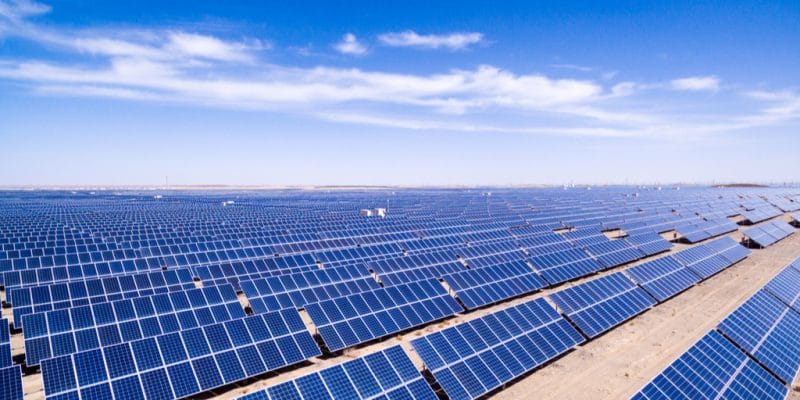
Energy
Five Indian consulting firms shortlisted for BWB’s 30MW solar power plant projectNovember 10, 2021 / Wahard Betha
The Governments of Malawi and India have prequalified five Indian consulting firms to conduct consultancy services for construction of 30 Megawatts Solar Power Plant for Blantyre Water Board (BWB).
The project will be financed by the Government of India through a US$215.68-million extended Line of Credit (LOC) by Export – Import (EXIM) Bank of India for the implementation of drinking water supply schemes and other development projects in Malawi.
The listed companies include: Avant-Garde Systems and Controls Limited; Darashaw and Company Limited; NTPC Limited; TATA Consulting Engineers and; WAPCOS Limited.
According to a General Procurement Notice, the listed companies were examined and verified for both completeness of their submissions and adherence of their applications to the prequalification criteria that was prepared by the Malawi Government.
Reads the statement by Malawi Government, EXIM Bank and BWB: “Blantyre Water Board which is one of the implementing agencies for the LOC intends to apply a portion of the funds towards construction of an Independent Power Producer (IPP) for own use.”
“The Importance of constructing an IPP for the Board cannot be overemphasized. Firstly, the project shall reduce operational costs to sustainable levels that will allow the Board to continue supplying affordable services.”
“This shall consequently help in the improvement of BWB’s business profitability which will enable timely system maintenance of faults and subsequent investments in expansion of network to unserved areas and technological improvements.”
The consultancy services will involve preparation of a detailed feasibility study and designs for the project, as well as preparation of Detailed Project Report (DPR).
BWB has proposed December 23, 2021 as deadline for submission of bids by consultants, and January 17, 2022 as the commencement date of consultancy services for the IPP project.































